- Details
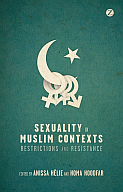 Using case studies from Pakistan, Iran, Indonesia, China, Bangladesh, Israel and India, Sexuality in Muslim Contexts argues that Muslim religious traditions do not necessarily lead to conservative agendas but can promote emancipatory standpoints. This book is one that should be read by all those interested in sexuality, religion, Islam, or gender, writes Olivia Mason. The wide range of case studies make it suitable for both an academic and general audience while the examples make it a stimulating and accessible read.
Using case studies from Pakistan, Iran, Indonesia, China, Bangladesh, Israel and India, Sexuality in Muslim Contexts argues that Muslim religious traditions do not necessarily lead to conservative agendas but can promote emancipatory standpoints. This book is one that should be read by all those interested in sexuality, religion, Islam, or gender, writes Olivia Mason. The wide range of case studies make it suitable for both an academic and general audience while the examples make it a stimulating and accessible read.
- Details
"I am always there for you, but you don't see me!"
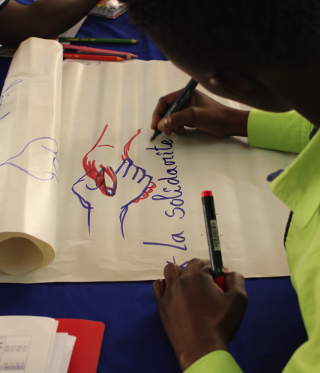 This was the message of a short video clip produced by the participants of the Activist School for young, queer women in Francophone West Africa, «Building Ourselves, Building our Communities», organised in February 2014 in Lomé, Togo by the Queer African Youth Networking Center (QAYN) and Isis International.
This was the message of a short video clip produced by the participants of the Activist School for young, queer women in Francophone West Africa, «Building Ourselves, Building our Communities», organised in February 2014 in Lomé, Togo by the Queer African Youth Networking Center (QAYN) and Isis International.
Nineteen young queer women from Benin, Burkina Faso, Cameroon and Togo attended the five day workshop, which took place from February 10 to 14 in Lomé. The main focus of the training was on building self-awareness and journaling, community building, facilitative leadership and media for community building. For many it was the first time to attend a workshop specific to queer, young women and the first time to convene and exchange with queer women from different countries.
- Details
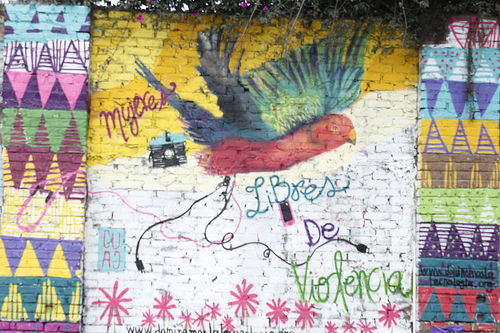 The Beijing Platform for Action calls upon the media and governments to ensure that women have equal participation in and access to the media, and to address stereotypical representations of women in the media. However, as the five-yearly Global Media Monitoring Project1 reports show, women's access to the media is progressing at a glacial pace. To help speed progress, UNESCO has joined with civil society organisations to launch the Global Alliance on Media and Gender (GAMG) following a three-day forum in Bangkok in December 2013.
The Beijing Platform for Action calls upon the media and governments to ensure that women have equal participation in and access to the media, and to address stereotypical representations of women in the media. However, as the five-yearly Global Media Monitoring Project1 reports show, women's access to the media is progressing at a glacial pace. To help speed progress, UNESCO has joined with civil society organisations to launch the Global Alliance on Media and Gender (GAMG) following a three-day forum in Bangkok in December 2013.
The alliance has three objectives, as outlined in the draft framework:
- “To strengthen international and regional cooperation to promote gender equality and women’s empowerment in and through the media - among all stakeholders working together to drive change globally;
- To follow-up and systematically monitor and evaluate one of the critical areas of concern of the Beijing Declaration and Platform for Action: Women and the Media Diagnosis, and its strategic objectives; and
- To develop, sustain, build priorities amongst a broad donor, government funding and development agency framework on gender and media.”
Read more: Getting women's voices heard: The Global Alliance on Media and Gender
- Details

“ONE in THREE women on the planet will be raped or beaten in her lifetime. That is ONE BILLION WOMEN” - One Billion Rising For Justice
Join the One Billion Rising 2014 campaign and dance, move, and rise in solidarity with us this Valentine’s Day!
In 2013, one billion individuals in 207 countries rose against violence against women and children ranging from the state demolition of homes in the Philippines to widespread sexual violence in Afghanistan and South Asia. This year, the One Billion Rising campaign calls women and men from across the globe once again to participate in a worldwide strike against injustice and to help ‘break the chain’ of gender violence.
- Details
By Kamla Bhasin
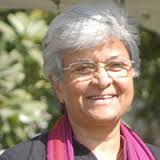 In early December 2013 I received a call from Swaraj, a Karnataka wide network of women’s groups, fighting against violence and all forms of discrimination against women, to invite me for a function to felicitate six rural women who have challenged the oppression of widows in their families and villages. They asked me to speak on Patriarchy as a Superstition. I was amused by this formulation and asked them why this topic. They said the government of Karnataka was planning to bring a new law against superstition and they want patriarchy to be declared a superstition and outlawed. I smiled whole heartedly and said, WOW. What a great idea!! Once again I marveled at the wisdom of working class rural women. I wondered why in spite of such wisdom of rural working class women, so many media people think feminism is an urban phenomenon.
In early December 2013 I received a call from Swaraj, a Karnataka wide network of women’s groups, fighting against violence and all forms of discrimination against women, to invite me for a function to felicitate six rural women who have challenged the oppression of widows in their families and villages. They asked me to speak on Patriarchy as a Superstition. I was amused by this formulation and asked them why this topic. They said the government of Karnataka was planning to bring a new law against superstition and they want patriarchy to be declared a superstition and outlawed. I smiled whole heartedly and said, WOW. What a great idea!! Once again I marveled at the wisdom of working class rural women. I wondered why in spite of such wisdom of rural working class women, so many media people think feminism is an urban phenomenon.
- Details
There's a rhythm and a dance to life, and sometimes we're too hungry, too beaten, too angry to notice it. On Valentine's Day this year, once again, women are taking bruised, beaten, oppressed bodies, and stamping out a new rhythm, a dance to witness that one billion women experience violence and that this is not acceptable. This year, again, there will be One Billion Rising, a worldwide strike to end that violence, and to build a more equitable world. You're invited to be part of the revolution.
Last year, women rose in Afghanistan, with hundreds of women taking to the streets in a variety of cities across the nation, protesting the rising rates of violence against women and the impunity with which rapists get away with their crimes. This year, pledge cards have been translated into Hindi and are being sent out across South Asia from the Sangat office.
Page 3 of 62




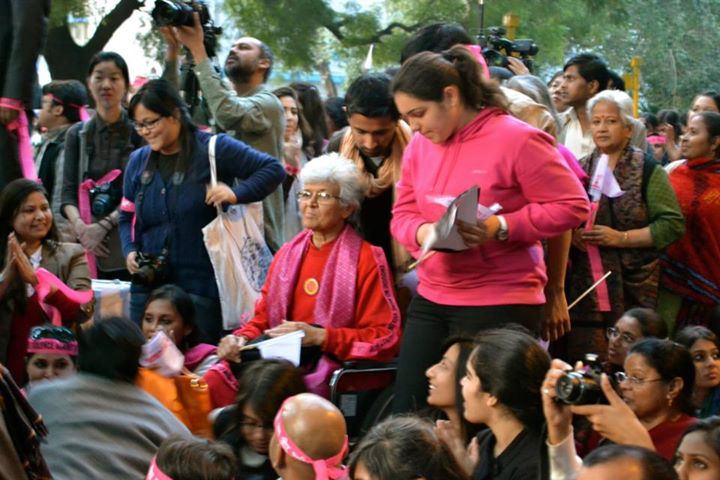

 The
The 
 Isis Resource Center holds one of the largest feminist collections of materials in the Global South. With 40 years of publication experience, Isis holds a vast collection.
Isis Resource Center holds one of the largest feminist collections of materials in the Global South. With 40 years of publication experience, Isis holds a vast collection.